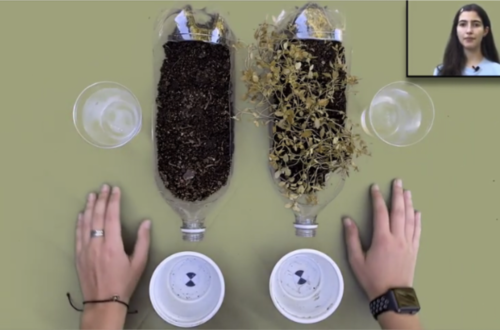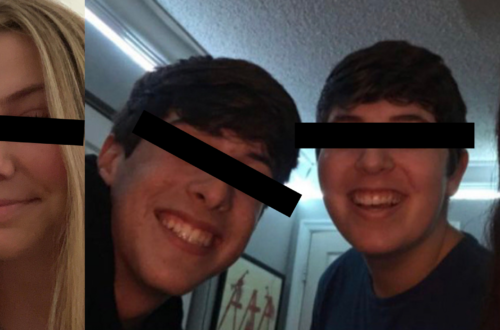How the theater department plans on translating live performances to a virtual environment
Neya Alper
There’s nothing quite like going to see a live theater production. Entering the grand venue, the cushioned seats slowly filling with eager viewers. The darkening of the lights, the pull of the curtain. The opening note reverberating through the auditorium as the live tableau begins on stage.
Unfortunately, this experience hasn’t been a reality since March 12, when Broadway closed. Productions were forced to pause, and reopening has been postponed to mid-2021. And the pandemic did not only affect large productions; it affected the smaller productions as well, especially school productions.
In the 2019-2020 school year, the planned spring musical was West Side Story. There were auditions, the cast list was released, and the rehearsals began. There were even a few stage crew meetings. Everything seemed to be fine. But then, barely over a month into production, schools closed due to the COVID-19 pandemic, throwing a wrench into what was supposed to be a very much in-person production.
“We were really disappointed at having to cancel last spring’s West Side Story,” said T.C. drama teacher Hope Bachman. “We’re trying to have layered plans, like A, B, C, et cetera, for each show this year so that no matter what happens with the pandemic, we have ways to move forward. We’re also planning contingencies.”
Of all the activities at T.C., theater may be one affected the most as it is an in-person activity that requires a lot of people working together in a close vicinity. Not only that, but theater, by definition, is something that is performed live. But unfortunately for the theater department, live performances might not be possible.
“We will be abiding by federal, state, city and local school system rules, regulations and policies,” said Leslie Jones, the other drama teacher at T.C.
These regulations, as of now, have entailed that all classes, clubs, and other school activities are completely online. So, the way things are headed now, it is likely that the theater department will have to be virtual too.
“We’re in a little bit of limbo right now, waiting for guidance from the school system,” said Bachman.
This “limbo” has had an effect on several aspects of production, the first and foremost being which productions they are allowed to do.
“Until we are given permission by the school system to attain the performance rights and materials from the publishing companies for our theater productions, we cannot publicly announce any play titles for our theater season nor are we allowed to hold auditions and/or rehearsals,” said Jones.
In other words, the theater department is not allowed to begin productions without licenses to do the productions, the purchase of which has to come from the school system. So, as of now, the theater department does not have any set performances. However, they do plan to do all the production types they have done in the past: the One-Act Play Festival competition, the fall play, and the spring musical. The theater department has tentative dates for when these performances may occur.
“At the moment, the theater department has the regular early January dates for the winter One-Act Play Festival competition, two winter dates in late January and early February for the fall play, and regular mid-April dates for the spring musical,” said Jones. “However, all of these dates are subject to change.”
Another aspect of the productions that is uncertain is how tangible elements like sets and costumes, and even the logistics of blocking and performing a show, can be translated into a virtual environment.
“If we are unable to perform in person, working virtually is its own complication,” said Bachman. “Your actors are just floating heads in tiny boxes. It requires a modified skill set to get a dynamic performance without the freedom to move.”
All productions are still open to the entire student body at T.C., so stay tuned for updates via Canvas announcements.
“The wonderful thing about any art, but especially theater, is that it is what you make it,” said Bachman. “No matter what happens, we trust in the creativity and resourcefulness of our students to make it work.”






